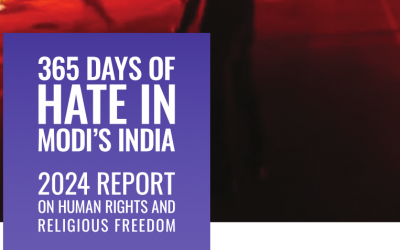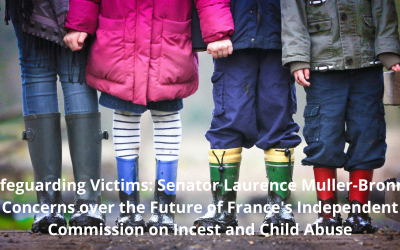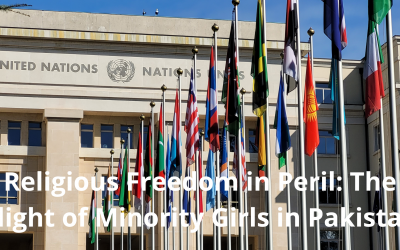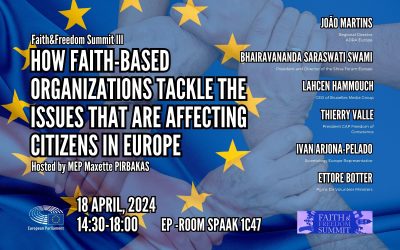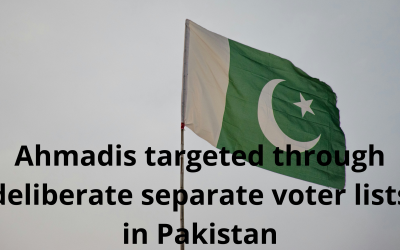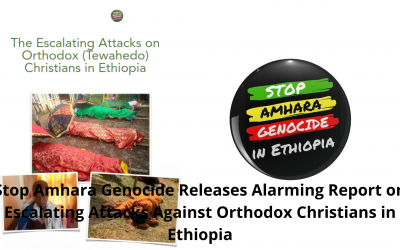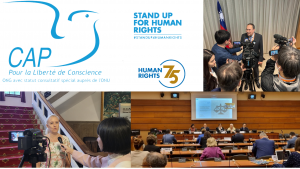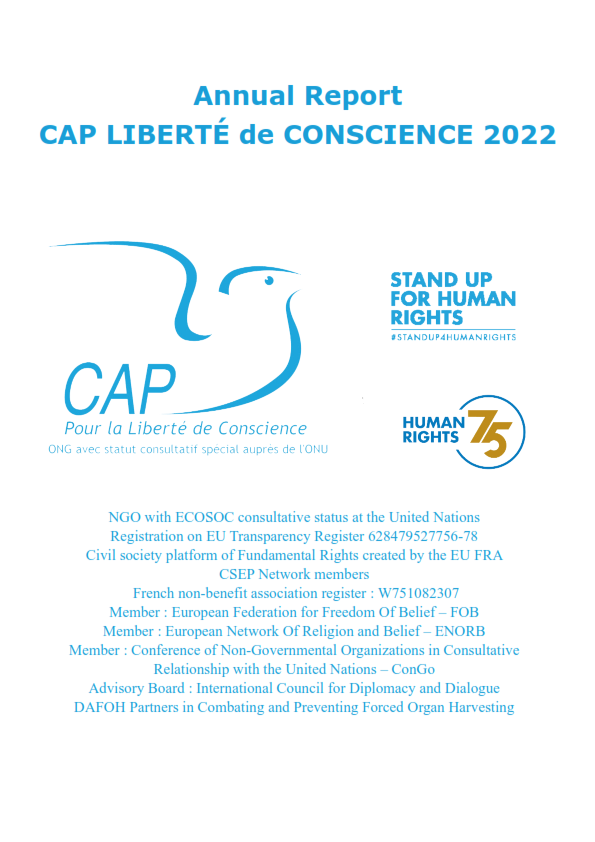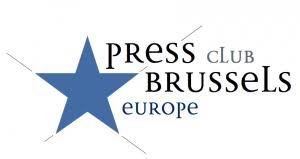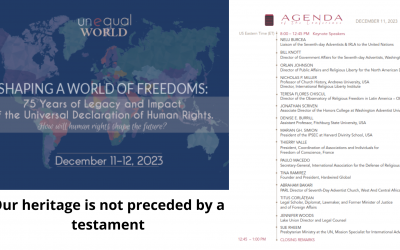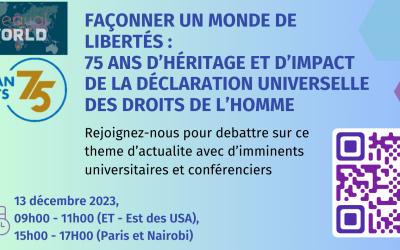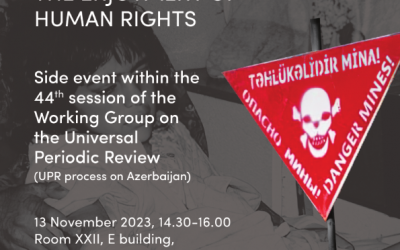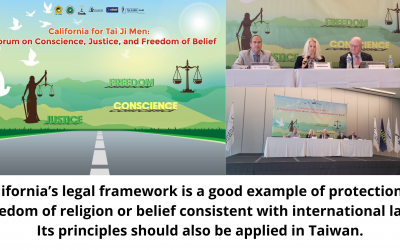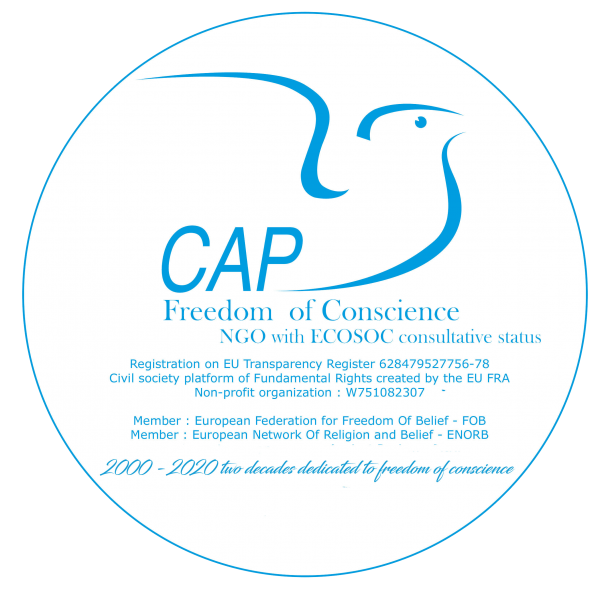
What is “Coordination des Associations et des Particuliers pour la Liberté de Conscience” (CAP Freedom of Conscience)?
CAP Freedom of Conscience is a secular European NGO with United Nations Consultative Status, created in 1995 and dedicated to protect the Right of Freedom of Religion and Belief.
CAP Freedom of Conscience combats all forms of discrimination based on religion or belief by alerting European and International bodies.
CAP Freedom of Conscience collects testimonies of discrimination and human rights violations affecting religious or belief communities in order to disseminate them to international bodies, and in order to raise awareness and inform them as well as to generate debate on the protection of Freedom of Religion and Belief.
CAP Freedom of Conscience also advocates for any religious or spiritual group facing discrimination to have their right to Freedom of Religion and Belief recognized.
CAP Freedom of Conscience is a member of the European Federation for Freedom of Belief (FOB), European Network Of Religion and Belief (ENORB) and participate to the Civil Society Platform of Fundamental Rights created by the EU Fundamental Rights Agency DAFOH Partners in Combating and Preventing Forced Organ Harvesting
IAMC Annual Report on Human Rights and Religious Freedom in India (2024)
The Indian American Muslim Council (IAMC), a U.S.-based advocacy organization, recently released its annual report titled “365 Days of Hate: 2023 in Modi’s India.” The 49-page report aims to inform legislators and policymakers about human rights conditions in India under Prime Minister Narendra Modi and his ruling Bharatiya Janata Party (BJP).
Safeguarding Victims: Senator Laurence Muller-Bronn’s Concerns over the Future of France’s Independent Commission on Incest and Child Abuse
In a recent parliamentary question, Senator Laurence Muller-Bronn of the Bas-Rhin region has expressed deep concerns over the troubling situation surrounding the Independent Commission on Incest and Violence against Children (Ciivise) in France. This comes on the heels of a recent UN expert declaration urging France to protect children from incest and all forms of sexual abuse.
Religious Freedom in Peril: The Plight of Minority Girls in Pakistan
https://freedomofconscience.eu/42th-upr-session-pakistan-jan-feb-2023-persecution-of-ahmadis-in-pakistan/
Social Impact of Faith-Based Organizations in Europe
FBO’s play a significant role in addressing societal challenges, promoting social cohesion, and advocating for the values of faith and freedom in the European Union (EU). This conference aims to provide a platform for MEPs and Civil Society to discuss the challenges, opportunities and impact of FBOs and their contributions to a more inclusive and sustainable society inside Europe.
Ahmadis targeted through deliberate separate voter lists in Pakistan
The Coordination des Associations et des Particuliers pour la Liberté de Conscience (CAP LC) and the International Human Rights Committee (IHRC) have been alerting the international community for years about the persistent persecution of the Ahmadiyya Muslim community in Pakistan. The latest press release from the IHRC highlights the alarming situation where the Pakistani government, in collaboration with local officials, has implemented a discriminatory practice of creating separate voter lists for Ahmadi citizens. This tactic aims to expose and target the Ahmadiyya community, leading to further discrimination and violence against them.
Stop Amhara Genocide Releases Alarming Report on Escalating Attacks Against Orthodox Christians in Ethiopia
Stop Amhara Genocide, a human rights organization dedicated to raising awareness about the ongoing Amhara genocide in Ethiopia, has released a comprehensive report detailing the escalating attacks on Orthodox Christians in the country. The report, titled “The Escalating Attacks on Orthodox Christians in Ethiopia,” sheds light on the systematic persecution, violence, and discrimination faced by adherents of the Ethiopian Orthodox Tewahedo Church, one of the oldest Christian denominations in the world.
CAP Freedom of Conscience involvement in Europe
Social Impact of Faith-Based Organizations in Europe
FBO’s play a significant role in addressing societal challenges, promoting social cohesion, and advocating for the values of faith and freedom in the European Union (EU). This conference aims to provide a platform for MEPs and Civil Society to discuss the challenges, opportunities and impact of FBOs and their contributions to a more inclusive and sustainable society inside Europe.
Assessing China’s Governance and Human Rights Landscape/ Invite
BRUSSELS CONFERENCE
Assessing China’s Governance and Human Rights Landscape
Our heritage is not preceded by a testament
Hannah Arendt quotes an aphorism by René Char (published in Feuillets d’Hypnos in 1946). “During the Resistance, a generation of European writers and men of letters created, in the political vacuum created by the collapse of the old system, a distinct public sphere, a bare space in which freedom could appear. But this opportunity did not last long. This treasure, which had appeared unexpectedly under mysterious circumstances, was soon lost. That generation was unable to give it a name. The history of revolutions was repeating itself.
Conference 13 Decembre – Façonner un monde de libertés : 75 ans d’héritage et d’impact de la Déclaration Universelle des Droits de l’Homme
Dans le cadre de la commémoration du 75e anniversaire de la Déclaration Universelle des Droits de l’Homme, un groupement d’Associations et d’ONG collaborant avec les Nations Unies organise une conférence en ligne les 11 et 12 décembre 2023 (en anglais) et le 13 décembre 2023 (en français). Cette conférence qui a pour thème « Façonner un monde de libertés : 75 ans d’héritage et d’impact de la Déclaration Universelle des Droits de l’Homme ! Comment les Droits de l’Homme façonneront-ils l’avenir ? », vise à explorer l’influence durable et la pertinence de cette Déclaration.
Information meeting on the UPR process in Azerbaijan
UPHOLDING UNIVERSAL COMMITMENTS:
Addressing the damaging impact of landmines on the enjoyment of human rights
Side event within the 44 session of the Working Group on the Universal Periodic Review
Room XXII, E building, Palais des Nations, Geneva 13 November 2023 / 14.30-16.00
California for Tai Ji Men: Conscience, Justice and Freedom of Belief
California, the Golden State, is known for its stunning landscapes, thriving entertainment industry, and diverse culture. Beneath the surface of this multifaceted state lies another remarkable aspect of its diversity: religious pluralism. From the Spanish missions of the 18th century to the bustling metropolises of the 21st century, California’s religious landscape has evolved into a vibrant tapestry of faiths and beliefs.

